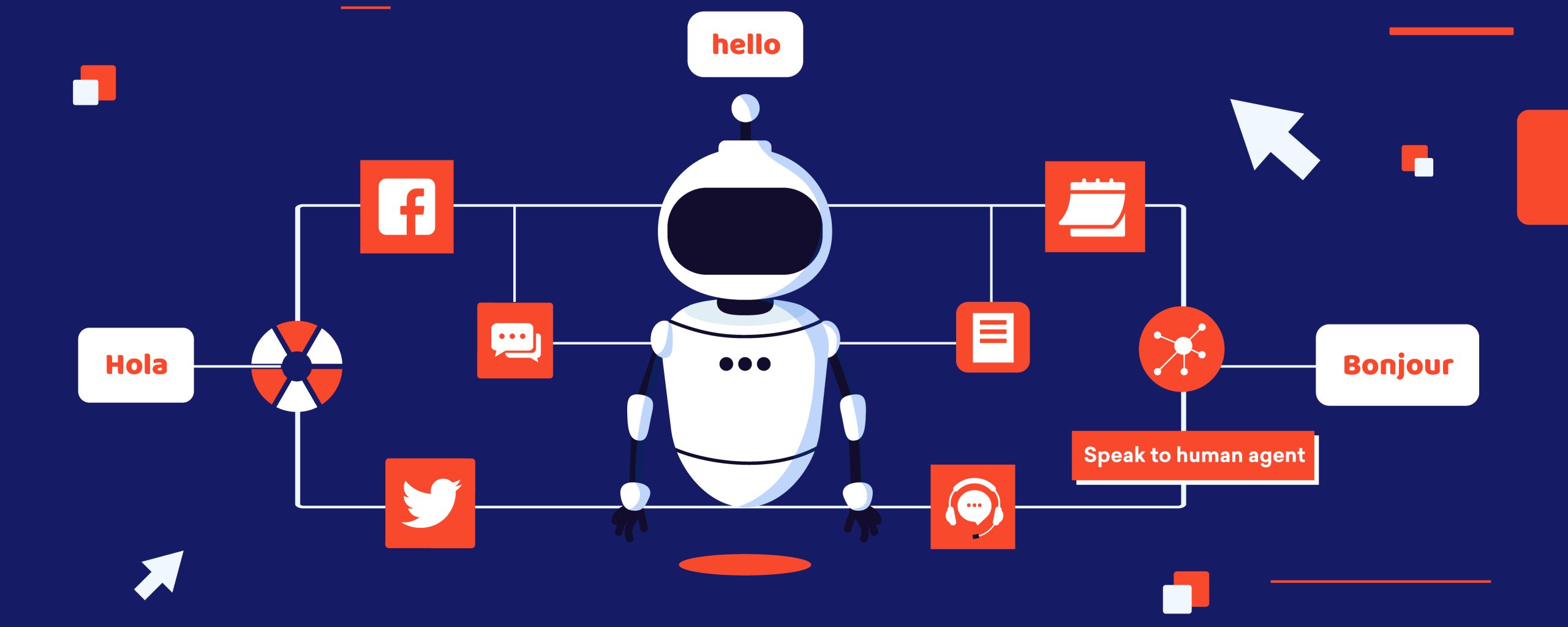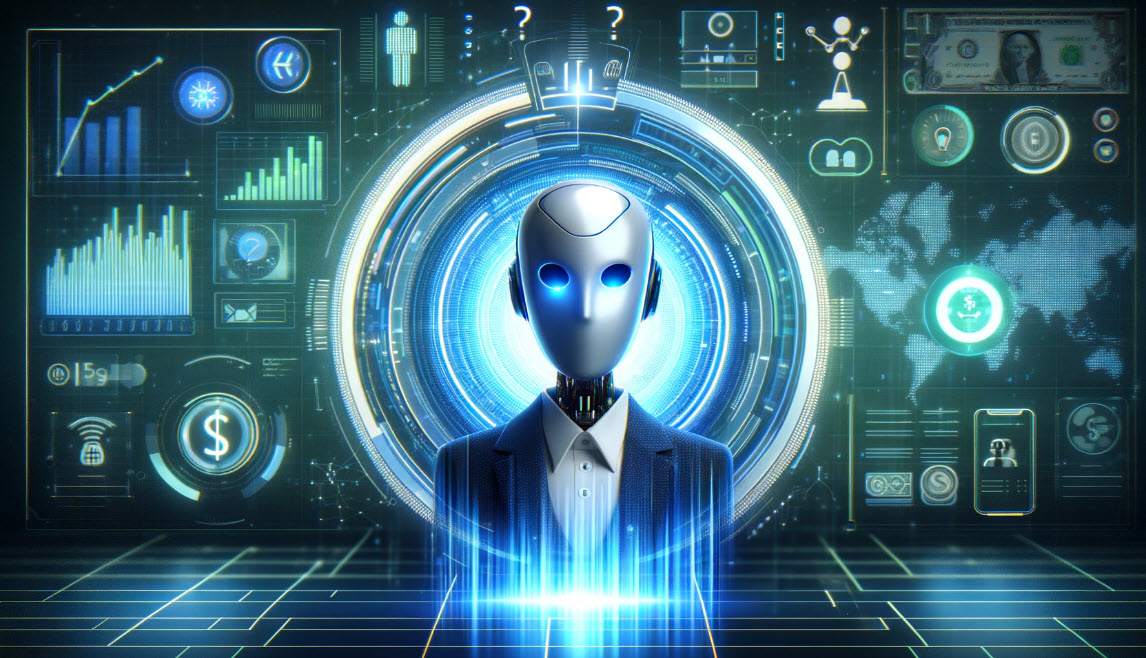In the digital age, we’re always searching for ways to streamline our interactions and boost efficiency. Chatbots have emerged as a game-changer, revolutionizing how we handle customer service, sales, and more. They’re not just futuristic; they’re here, and they’re making a splash across various industries.
We’ll dive into the myriad advantages of chatbots, from their ability to offer 24/7 support to personalizing user experiences. Whether you’re a small business owner or a tech enthusiast, understanding the benefits of chatbots is crucial to staying ahead of the curve.
Join us as we explore how these digital assistants can save time, cut costs, and enhance customer satisfaction. You’ll find out why chatbots might just be the smartest addition to your digital strategy.

Advantages of Chatbots
In today’s fast-paced digital world, we’ve seen the emergence of chatbots as a game changer in enhancing customer engagement and streamlining support functions. They’re vital tools that businesses should leverage to stay competitive and meet the ever-growing expectations of their clientele.
Round-the-Clock Service
One of the most apparent benefits of chatbots is their ability to provide 24/7 customer support. Unlike human staff, chatbots don’t need rest. They can handle inquiries and solve problems at any hour, thus offering an uninterrupted service that ensures customer needs are addressed promptly, no matter the timezone.
Handling Capacity
Chatbots can engage with multiple customers simultaneously. This eliminates long wait times and can dramatically increase efficiency. By automating responses to common questions, they free up human agents to focus on more complex queries, optimizing the overall workflow.
Personalization at Scale
With the advancement in machine learning, chatbots have the capability to deliver personalized experiences to users. They remember past interactions and preferences, which allows them to tailor their communications and recommendations. This level of customization was once only achievable through human interaction but can now be scaled infinitely through chatbot technology.
Cost Efficiency
By integrating chatbots into their customer service strategy, businesses can save significantly on operational costs. They reduce the need for a large customer service team to manage inquiries and issues, translating to substantial savings in labor costs.
Data Collection
Chatbots serve as valuable data collection points. They can track user interactions and feedback, providing businesses with insights into customer behavior and preferences. This data is crucial for improving products, services, and the customer experience.
We’re constantly discovering new and innovative ways in which chatbots are beneficial. They’re not just a futuristic concept but a present-day asset that continues to evolve and adapt to our needs. Whether it’s through enhancing customer service, ensuring efficiency, or personalizing experiences, chatbots are an indispensable element of modern business strategy.

24/7 Support
One of the most significant advantages of chatbots is their ability to provide round-the-clock support. Unlike human-operated service centers, chatbots aren’t confined to standard business hours or time zones. They can engage with customers regardless of the hour, ensuring no query goes unanswered. This aspect of chatbot functionality transforms the user experience, catering to a global audience and maintaining a constant presence.
With 24/7 availability, chatbots play a critical role in addressing immediate needs, such as password resets or account inquiries, mitigating potential frustration. They’re programmed to handle a wide range of questions, guiding users effectively through troubleshooting steps or providing instant responses to common queries. Such consistent support leads to improved satisfaction rates among customers, reinforcing brand reliability and trust.
The perpetual operation of chatbots allows businesses to offset peak times when customer service teams are overwhelmed. Here’s how chatbots can manage high demand without compromising service quality:
- Identifying and solving standard issues without human intervention
- Prioritizing conversations based on complexity and urgency
- Escalating more serious concerns to human representatives
It’s worth noting that chatbots aren’t prone to fatigue. There are zero downtimes due to breaks, absences, or holidays, which significantly reduces response times. A quick response, even if it’s just to acknowledge the receipt of a customer’s message, can make all the difference in today’s fast-paced world.
The implementation of chatbots for 24/7 support not only improves customer experience but also provides valuable analytics and insights. The data collected from these interactions helps businesses understand customer preferences and pain points, allowing for more strategic decision-making in improving products and services.
Ultimately, the adoption of chatbots positions businesses at the forefront of innovation, demonstrating a commitment to customer convenience and leading the charge in the evolution of digital support.
Personalized User Experiences
Turning to the realm of customized interactions, chatbots excel in delivering personalized user experiences. By harnessing the power of AI and machine learning, chatbots analyze previous interactions, preferences, and user data to offer tailored responses and recommendations. This individualized approach not only enhances customer engagement but also nurtures a closer connection between the user and the brand.
Here’s how chatbots personalize the user experience:
- Recognizing return customers: Chatbots can greet returning visitors by name, referencing past conversations to provide a sense of continuity.
- Customized recommendations: Based on prior interactions, chatbots can suggest products or services that are more suited to the individual’s interests.
- Adaptive responses: They learn from each interaction, meaning they constantly improve their communication style to meet each user’s unique needs.
We find that personalized interactions significantly increase conversion rates and customer loyalty. In essence, when a chatbot remembers a customer’s preferences, it’s assembling a bridge of trust. This is fundamental in transforming casual visitors into long-term clients.
Moreover, in an age where time equates to money, chatbots swiftly process this personal data to offer swift and relevant assistance. This speed, paired with personalization, is what sets businesses with chatbots apart from those adhering to more traditional communication methods.
The ability of chatbots to scale this personalized attention is paramount. Unlike human agents, chatbots don’t face the constraint of memory or bandwidth. Consequently, even during peak traffic periods, every user still receives that one-on-one attention that so critically defines the quality of customer service in today’s competitive digital landscape. By integrating these sophisticated systems, businesses are equipped to meet the rising expectations for not just immediate but also deeply personal digital interactions.
Time-Saving Features
Chatbots are an efficient solution for streamlining customer service operations. By automating routine inquiries, they dramatically cut down on the time needed for customer interactions. Instant responses from chatbots mean that customers don’t have to wait in queues, leading to faster resolution of their concerns.
We’ll explore some key time-saving features of chatbots:
- Quick Resolution of Common Questions: Chatbots can resolve frequently asked questions instantly, freeing up human agents to handle more complex issues.
- Automated Ticket Generation: When an issue needs to be escalated, chatbots can automatically create support tickets, saving customers the hassle of navigating through support channels.
- Integration with CRM Systems: Chatbots linked with Customer Relationship Management (CRM) systems can quickly access customer data, providing relevant information and solutions without delay.
Moreover, chatbots are compatible with various platforms, including websites, social media, and messaging apps. This versatility ensures that customers can engage with them from their preferred channels, leading to a smoother experience.
Intelligent routing facilitated by chatbots also contributes to time efficiency. They can assess a customer’s issue and direct them to the appropriate human agent if needed, ensuring that customers don’t waste time being transferred from one department to another.
For businesses, the implementation of chatbots translates to lower operational costs through reduced staffing requirements, especially during off-hours. Additionally, by collecting and analyzing customer data, chatbots can help streamline future interactions, predicting and preemptively answering user inquiries.
By leveraging these time-saving features, we ensure that our customer service is not just responsive but also remarkably efficient. Chatbots truly redefine our capacity to manage time effectively, balancing customer satisfaction with operational productivity.
Read Also: How AI chatbots helps in banking
Cost-Cutting Benefits
As we delve into the financial aspects of chatbots, we can’t help but highlight the Cost-cutting benefits they provide for businesses of all sizes. By implementing chatbots, companies significantly reduce labor costs associated with customer service. In many cases, chatbots are capable of handling an array of customer service tasks without human intervention, which reduces the need for a large staff to manage customer queries, especially outside of regular business hours.
One of the most substantial savings comes from the ability of chatbots to streamline operations. They effortlessly manage repetitive tasks and questions, allowing staff to focus on more complex and revenue-generating activities. With chatbots, the efficiency of handling customer interactions increases, and the time spent on each interaction is reduced, which translates into savings on wage expenditure.
Moreover, training costs are notably minimized when chatbots enter the picture. Unlike human employees, chatbots do not require ongoing training for standard responses. Once they’re programmed and integrated with a knowledge base, they instantly provide accurate and consistent responses. In the long term, this also means reduced costs in human resource management and training program development.

Another pivotal cost-saving advantage of chatbots lies in their scalability. During peak periods, businesses typically need to hire temporary staff or pay overtime to manage the increased workload. Chatbots can handle these fluctuations in volume without additional costs. Moreover, they do not experience fatigue or burnout, ensuring uninterrupted customer service quality regardless of the demand.
Lastly, the integration of chatbots with analytics tools provides valuable insights, enabling businesses to streamline their services further. These insights help identify trends, optimize chatbot responses, and improve overall operational efficiency. By continuously learning from user interactions, chatbots contribute to a gradual reduction in operating costs over time.
Transitioning to chatbots represents a strategic decision that goes beyond improving customer satisfaction. It’s about embracing a technology that simultaneously enhances user engagement while driving down costs, delivering a smart, economical solution for modern business challenges.
Enhanced Customer Satisfaction
In the realm of customer service, satisfaction is paramount. We recognize that chatbots are game-changers in this aspect, drastically improving the overall customer experience. Users increasingly prefer quick and hassle-free problem resolution, and chatbots are ideally suited to deliver on these expectations. They offer immediate interaction and problem-solving without the frustration of long hold times or navigating complicated phone menus.
Chatbots are also equipped with Natural Language Processing (NLP) capabilities, which allow them to understand and respond to queries in a human-like manner. This technology ensures that chatbots interpret the intent behind a user’s words, allowing for more accurate and relatable communication. By providing responses that feel personal and empathetic, chatbots foster a sense of rapport and trust with the customer.
Here’s a closer look at how chatbots enhance user satisfaction:
- Instantaneous Responses: Users get immediate answers to their questions anytime.
- Consistency in Service: Chatbots offer a uniform service experience, maintaining brand voice and service standards.
- Multilingual Support: They can communicate in various languages, broadening the reach of customer support.
- Less Room for Error: Unlike humans, chatbots aren’t prone to misunderstandings due to fatigue or oversight, thus reducing the likelihood of mistakes.
Feedback mechanisms integrated within chatbot interactions allow us to continuously refine our approach, ensuring that user feedback directly influences further enhancements. This iterative process is essential to upholding high customer service standards and is pivotal in understanding the evolving needs of our users.
The incorporation of chatbots into customer service practices doesn’t just add value to the user experience; it revolutionizes it. As we stay dedicated to improving these intelligent systems, we’re constantly amazed at the ways chatbots make each customer interaction more satisfying and impactful. With every query handled competently by a chatbot, customer confidence grows, paving the way for lasting relationships and brand loyalty.
Conclusion: Chatbot Advantages
We’ve seen firsthand the transformative power of chatbots and their role in modernizing customer service. They’re not just tools; they’re tireless allies in our quest to keep customers engaged and satisfied. With their seamless integration into our digital strategies, we’re able to elevate the user experience to new heights. As we continue to embrace these innovative solutions, we’re confident in the lasting impact they’ll have on our brand’s growth and customer loyalty. Let’s keep the conversation going—chatbots are just the beginning.